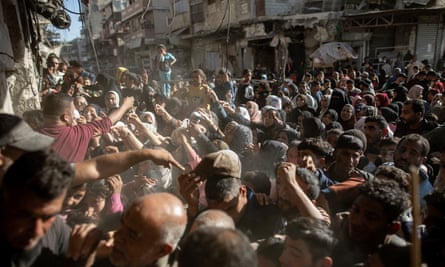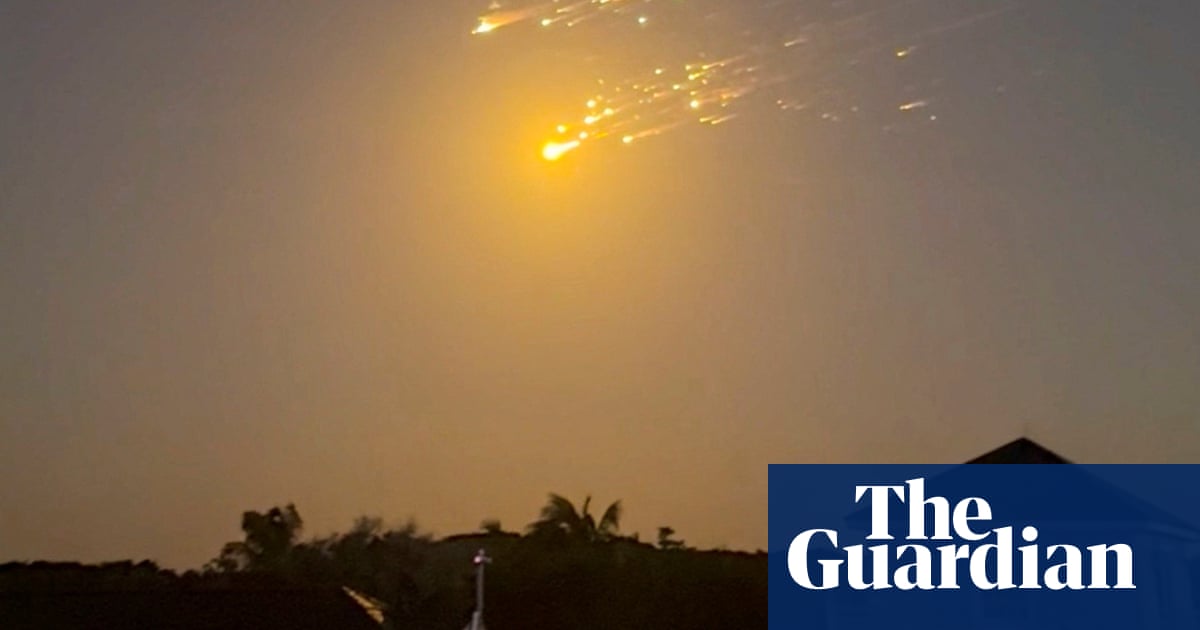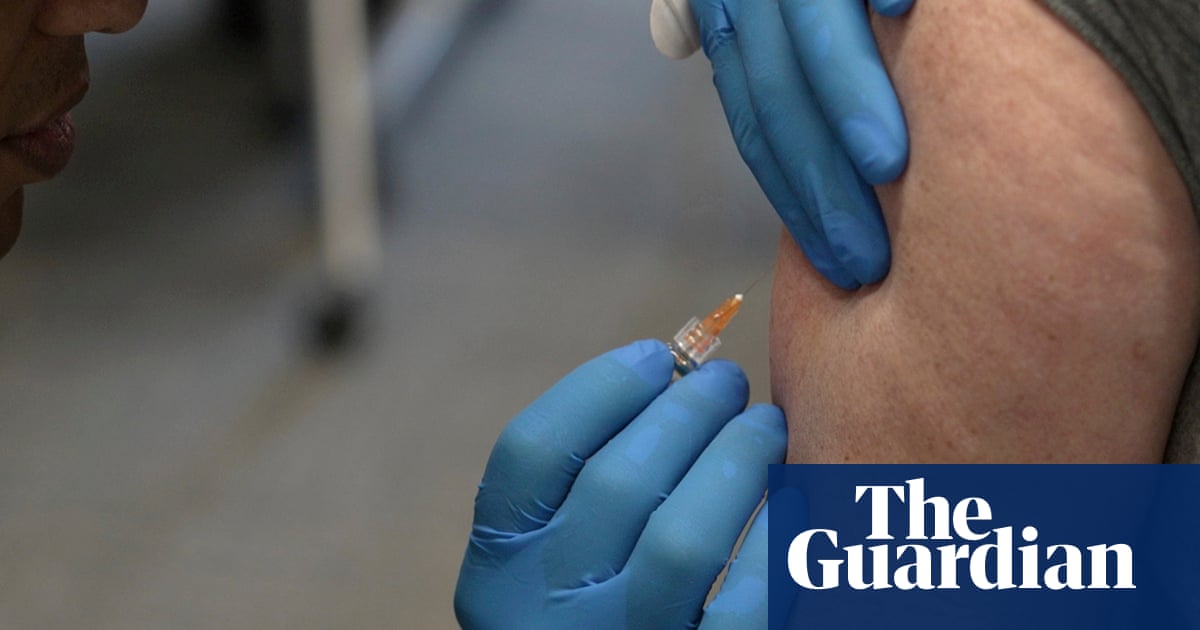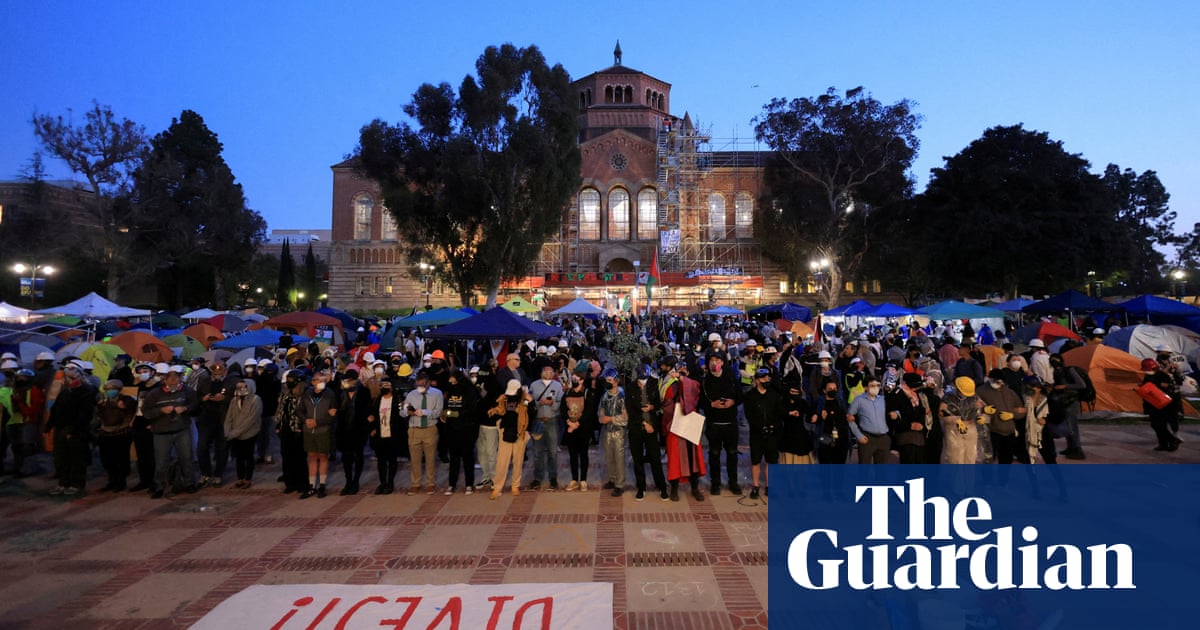There is a “strong likelihood that famine is imminent in areas” of the northern Gaza Strip, a committee of global food security experts warned on Friday, as Israel claims to be pursuing a military offensive against Palestinian militant group Hamas in the area.
“Immediate action, within days not weeks, is required from all actors who are directly taking part in the conflict, or have influence on its conduct, to avert and alleviate this catastrophic situation,” the independent Famine Review Committee (FRC) said in a rare alert.
The warning comes just days ahead of a US deadline for Israel to improve the humanitarian situation in Gaza, which the UN said almost a year ago had been made “uninhabitable” by Israeli attacks, or face potential restrictions on US military aid.
The Biden administration has previously demanded that Israel allow in more aid but done little to enforce its requests, even reportedly ignoring its own agencies after they concluded that Israel had deliberately blocked deliveries of food and medicine to Gaza. US law requires that weapons shipments be cut off to countries that prevent the delivery of US-backed aid.
Israel’s mission to the UN in New York did not immediately respond to a request for comment, Reuters reported. “If no effective action is taken by stakeholders with influence, the scale of this looming catastrophe is likely to dwarf anything we have seen so far in the Gaza Strip since 7 October 2023,” the FRC committee said.

The UN Office for the Coordination of Humanitarian Affairs estimates there are between 75,000 and 95,000 people still in northern Gaza.
The Famine Review Committee said it could be “assumed that starvation, malnutrition, and excess mortality due to malnutrition and disease, are rapidly increasing” in north Gaza.
“Famine thresholds may have already been crossed or else will be in the near future,” the global hunger monitor said.
The US has said it is watching to ensure that its ally’s actions on the ground show it does not have a “policy of starvation” in the north, parts of which Israel has placed under a tight siege as part of what it claims is a military push against Hamas.
However, Palestinians as well as Israeli human rights groups and some Israel Defence Forces soldiers say Israel is putting into practice a blueprint known as the “generals’ plan”, a “surrender or starve” campaign aimed at depopulating northern Gaza.
Israel denies it is carrying out the plan, but earlier this week a military official told reporters it had “no intention” of allowing Palestinians to return to their homes in northern Gaza.
The UN secretary general, António Guterres, has suggested that the ethnic cleansing of Gaza by Israel had been prevented until now only by its people’s refusal to succumb to the intense pressure to flee their homes and by Arab resolve not to accept mass population transfers.
And while resettling or permanently reoccupying Gaza is not official Israeli policy, senior Israeli defence officials recently told the Israeli daily Haaretz that with no other alternatives on the table, the government is aiming to annex large parts of the territory.
Hundreds of Palestinians have been killed in Israeli attacks on hospitals, school and homes sheltering already displaced people in the area, which many have been unable to flee.
More than 43,000 Palestinians have been killed in Israel’s campaign in Gaza, according to local health officials, though experts say the true figure is likely to be much higher. Thousands are believed to remain buried under the rubble and tens of thousands more have been wounded.
It is not possible to verify the death toll independently as Israel does not allow foreign journalists in but according to a UN analysis of verified deaths released on Friday, nearly 70% of the people killed in the war in Gaza have been women and children.
The FRC used an internationally recognised standard known as the Integrated Food Security Phase Classification (IPC) in its findings. The IPC defines famine as when at least 20% of people in an area are suffering extreme food shortages, with at least 30% of children acutely malnourished and two people out of every 10,000 dying daily from starvation or malnutrition and disease.
The IPC is an initiative involving UN agencies, national governments and aid groups that sets the global standard on measuring food crises.
The IPC warned last month that the entire Gaza Strip was at risk of famine, while top UN officials last week described the northern Gaza Strip as “apocalyptic” and said everyone there was “at imminent risk of dying from disease, famine and violence”.
The amount of aid entering Gaza has plummeted to its lowest level in a year, according to UN data, and the UN has repeatedly accused Israel of hindering and blocking attempts to deliver aid, particularly to Gaza’s north.
Israel’s UN ambassador, Danny Danon, told the security council last month that the issue in Gaza was not a lack of aid, claiming more than a million tons had been delivered during the past year. He accused Hamas of hijacking the assistance.
Hamas has repeatedly denied Israeli allegations that it was stealing aid and says Israel is to blame for shortages. Israel has repeatedly attacked aid convoys and aid workers as well as people waiting to receive food aid.
“The daily average number of trucks entering Gaza in late October was about 58 per day,” Jean-Martin Bauer, the UN World Food Programme’s director of food security and nutrition analysis, said on Friday. “We were getting about 200 a day in September and August, so that’s really a big, big decline.”
Aid agencies have previously said at least 600 trucks a day are needed to avert famine.
Reuters contributed to this report

.png) 3 months ago
25
3 months ago
25













































